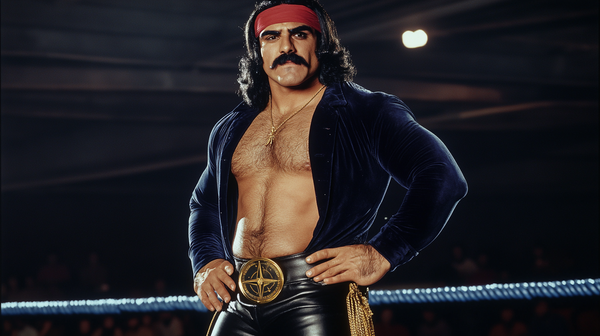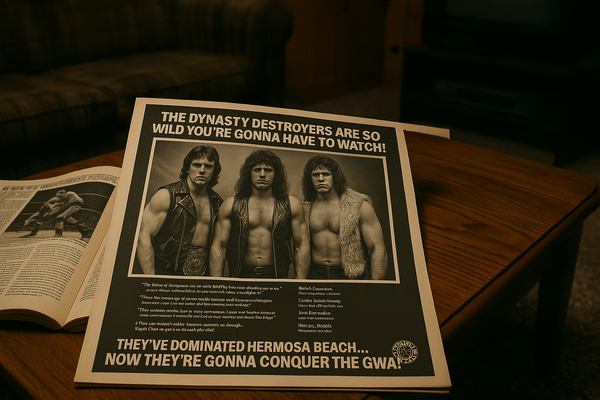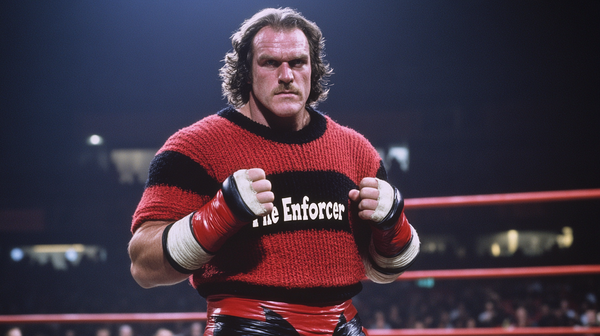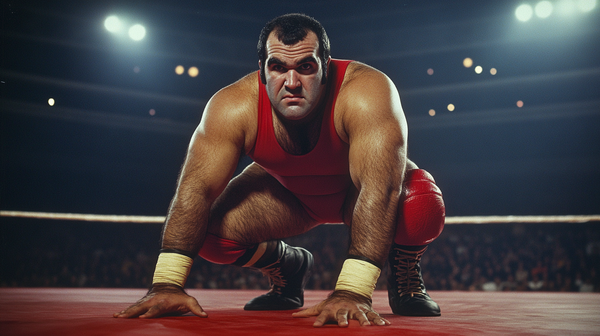Clara McCready, "The Combine"
The embodiment of rural defiance—a broad-shouldered farm woman who lost everything in the Farm Crisis and found redemption in the squared circle. Not just a wrestler, but a living storm front of Midwestern grit who fights for the forgotten heartland.

BASIC INFORMATION
Ring Name: Clara McCready, "The Combine"
Nickname(s): The Combine, Aunt Carla
Origin: Lucas County, Iowa
Height: 5'10"
Weight: 210 lbs
Finishing Move: "The Last Acre" (Double-underhook sitout powerbomb)
Entrance Music: "Rain on the Scarecrow" by John Mellencamp
PROFILE
Background
Clara McCready was raised on a third-generation farm in Iowa, educated in agricultural science, but returned home after her father's heart attack in 1981. When her family lost everything in the Farm Crisis of the mid-80s, Clara transformed her grief into purpose. She began appearing at wrestling shows in Des Moines, eventually adopting the moniker "The Combine"—a force of nature that could plow through anything in her path. Clara doesn't wrestle for glory; she wrestles because it's the only place where her pain has meaning and where a woman with callused hands can fight back against a system that took everything from her community.
Personality Traits
- Stoic resilience and unwavering determination
- Blunt honesty without pretense
- Protective of younger wrestlers and rural communities
- Deeply principled with an unwavering moral code
PRESENTATION

Physical Appearance
Clara is built for function, not flash—a sturdy frame shaped by years of actual labor, not just gym work. She enters wearing faded denim overalls over a flannel shirt, red bandana tied around her neck, and scuffed work boots. Her dirty-blonde hair is cut long and curly, sometimes pulled back with her trademark bandana. She carries her calf-leather work gloves tucked in her back pocket, only putting them on inside the ring—a signal that serious work is about to begin.
Ring Style
Clara's wrestling style combines a power-based brawling foundation with surprising bursts of agility. She stays low to the ground, uses leverage effectively, and can absorb punishment that would flatten others. She favors submissions that grind opponents down over time, punishing slams that emphasize her raw strength, and occasional bursts of surprising agility from years of farm work. There's nothing flashy about her approach—every move looks devastating because she makes it look like actual work.
Signature Moves:
- "Plow Line Lariat" – A devastating short-arm clothesline with full hip rotation
- "Broken Fence Lock" – Modified crossface chickenwing that isolates joints
- "Harvest Crush" – Running corner splash followed by a back suplex
AUDIENCE CONNECTION
Catchphrases
- "This land don't give you nothin' you ain't bled for."
- "You can't foreclose on these hands!"
- "I don't raise hell—I raise yields and drop opponents."
- "They call me The Combine because I separate the wheat from the chaff—and honey, you're just dust in my wake!"
- "In my father's house were many acres. In my hands is your defeat."
Fan Interaction
Clara connects with audiences through her authenticity rather than pandering. Before matches, she performs "The Soil Test"—squatting down to run her gloved hand along the mat, rubbing it between fingers like checking soil before planting. After victories, she raises both fists slowly, like a farmer showing calloused hands at church—a gesture of pride, not showmanship. Rural fans especially embrace her as "Aunt Carla," seeing in her a representative of their own struggles. She acknowledges them with quiet nods of respect rather than theatrical gestures, reinforcing the genuine bond between them.
LEGACY
Clara McCready embodied wrestling's ability to turn real-world pain into meaningful storytelling. She legitimized women's wrestling as a vehicle for serious social commentary rather than just spectacle. Her character gave voice to the forgotten rural communities struggling through economic collapse, proving that wrestling could address substantive issues while delivering compelling in-ring action.




